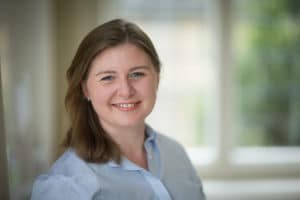How did you become a forecaster?
It is a little fraudulent for me to claim that I am a forecaster! When asked to give an explicit forecast, the one thing I have learnt from my research is that forecasting is a perilous game and forecasts will almost always be wrong, so I avoid doing so. I’m not brave enough to put myself into the firing line by being a forecaster. Instead, my interest is in forecasting methodology, trying to understand why economic forecasts are frequently and systematically incorrect and how we can improve them.
In the present climate this is no mean feat. Here in Britain, the Brexit vote saw politicians claim that they had had ‘enough of experts’. Despite clear consensus from well-respected bodies including the Bank of England, International Monetary Fund, Institute of Fiscal Studies, etc., the public no longer had trust in economic forecasts. Or perhaps they never did. But following the Financial Crisis and Great Recession, trust was at an all-time low. What more incentive does one need to work in the field…
How did you get into the field?
That is thanks to one man who has been my inspirational mentor and friend. I arrived in Oxford for graduate study in economics with the sole aim of working with one individual. I tentatively knocked on his office door to ask if he would supervise my MPhil thesis with a feeling of trepidation – his reputation as a formidable academic was well known to me even at that stage. He asked me where I had done my undergraduate degree, and as I replied Durham University I could see that he did not want to take me on. But miraculously (especially given my poorly thought out proposal on measuring the output gap) he agreed, and that commenced more than a decade of collaboration with Professor Sir David Hendry. He was my route into forecasting, having written extensively on the topic with Professor Mike Clements, as well as Professor Neil Ericsson and many other colleagues.
David and Mike had revolutionised the field of macroeconomic forecasting, discarding the assumptions made in the vast majority of academic papers that the world is stationary and the forecasting model is well specified. Instead, they developed an entire theory of forecasting under the realistic assumptions that the world is non-stationary, not only in the sense of stochastic unit roots but also subject to structural breaks where the entire distribution can shift suddenly and unexpectedly, and the models used to forecast are wrong. To a young graduate student with little technical knowledge but able to see the vast gulf between economic models and reality, this was like seeing the light. The need to take empirical reality seriously was instilled in me right from that early stage, prior to when the financial crisis hit.
What areas of forecasting interest you?
I’m interested in the ‘unknown unknowns’. What happens when a shock hits that knocks the economy off-course? The economic models we have struggle to adapt to the new environment as most models have an inbuilt equilibrium that the forecasts keep correcting back to. Our research looks at how we can use existing models in this shifting environment, as well as how to improve the selection of models for forecasting. Such techniques can also be applied to nowcasting. The Great Recession exposed the failures of existing methods of nowcasting when structural change occurs, with serious implications for policy.
The long term goal is to predict structural breaks. Before you think ‘no chance’, there have been successes in other fields such as volcanology and earthquake detection, and we are hopeful that the techniques that we are developing in detecting and modelling breaks will yield advances in the field of economics. Combining high frequency, big data, with rapid detection of shifts looks like a fruitful avenue of research.
How has the International Institute of Forecasting influenced you?
I attended my first International Symposium of Forecasting in Santander in 2006. It was by far and away the friendliest conference I had attended as a young researcher and I immediately felt welcomed into the forecasting community. Professor Dilek Onkal took me under her wing and encouraged me to run for the Board, and I was fortunate enough to be elected to the Board of the International Institute of Forecasters from 2011-15. This was great experience and I saw the wide range of impressive forecasting work that our members undertake. It is an incredibly diverse Institute, and supporting young researchers is one of its many strengths. As well as learning a lot at the annual conference, the connectedness with other, likeminded researchers is invaluable. The representation of women in economics is something that gets me exercised – we are hugely underrepresented – but anecdotally the subfield of forecasting within economics seems to be one area that does not have a macho culture. While we still have a long way to go, I would encourage young female researchers to think about forecasting as field of research.
What do you do in your free time?
Two small children put paid to any free time I once had. Although perfectly predictable ex ante it was still a surprise!


